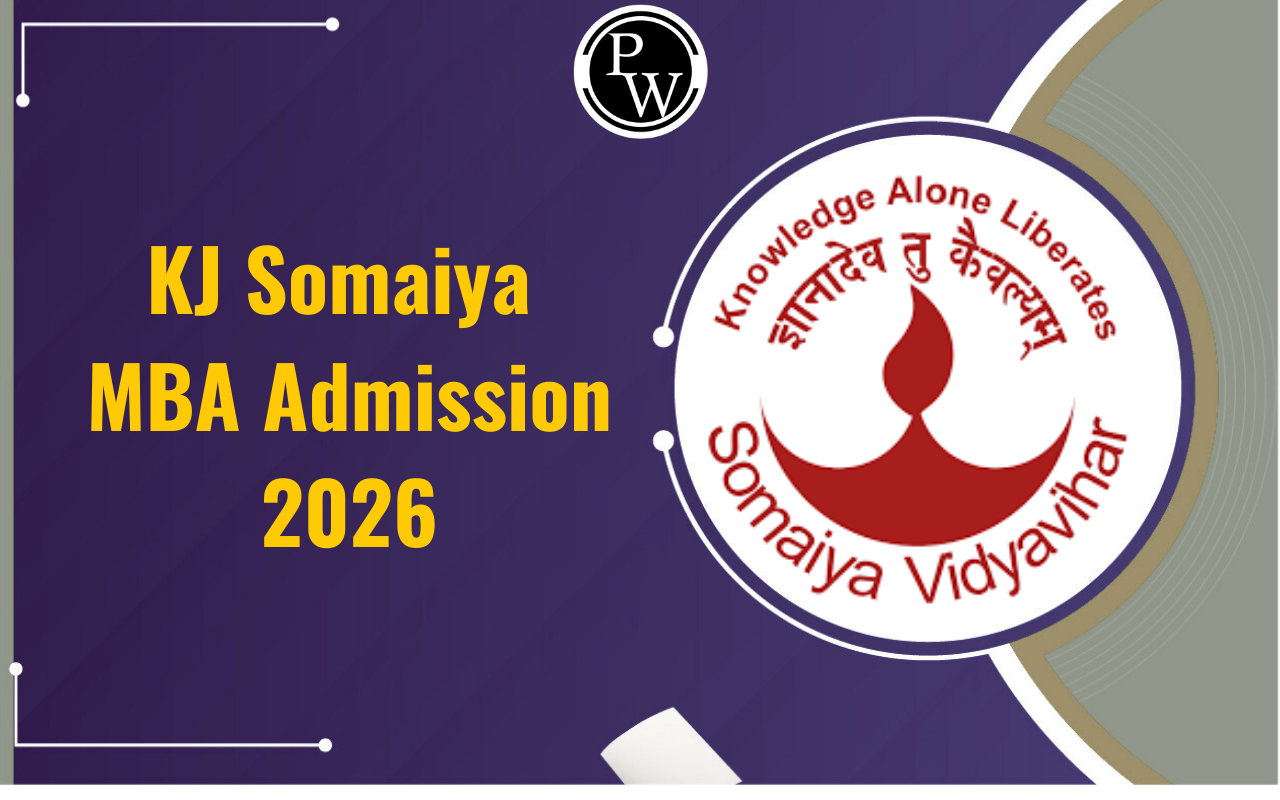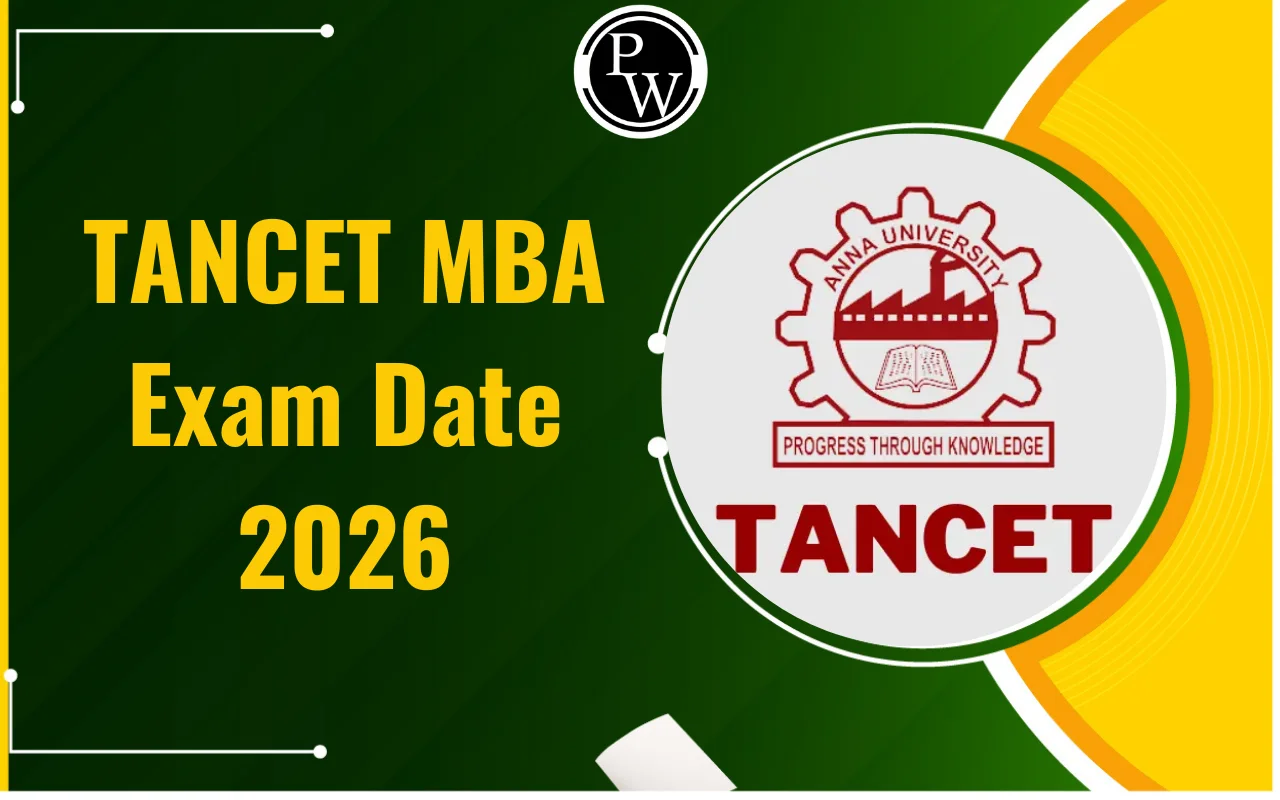
GMAT Preparation Strategy: GMAT is widely regarded as a challenging exam, but with the right approach and a well-structured study plan, candidates can achieve impressive results. A strong GMAT score plays a vital role in gaining admission to top global MBA programs and can also open doors to valuable scholarship opportunities abroad.
Aspirants can choose between self-preparation and enrolling in a coaching institute, based on their individual learning preferences. Opting for professional coaching, such as from PW, offers the advantage of expert mentorship, which can significantly enhance the effectiveness of one’s preparation strategy.
Overview of GMAT Preparation Strategy
The GMAT Exam consists of three sections, namely Quantitative Reasoning, Data Insights, and Verbal Reasoning. The overall score on the GMAT is determined by aggregating the scores of all three sections. GMAC establishes all the eligibility requirements established by GMAC of GMAT. To participate in the exam, candidates must meet all the GMAT eligibility criteria 2025 to attempt the exam. The tips provided here for each GMAT section are crucial for adopting a comprehensive preparation approach that scores well in the exam:
GMAT Preparation for Verbal Reasoning
The verbal section of the GMAT syllabus evaluates candidates' ability to comprehend written passages, assess arguments, and make corrections based on standard written English. GMAT preparation strategy for the VR section includes the following:
-
Practicing a variety of reading comprehension passages. Break down each passage into smaller sections and tackle one question at a time for better clarity.
-
Gaining in-depth knowledge of grammar rules. Sentence correction questions in GMAT are known for their complexity and require strong analytical thinking. Understanding topics like prepositions and modifiers is critical for choosing the correct answer.
-
Reading quality editorial content regularly, such as newspapers, to sharpen reading speed and comprehension. This enhances verbal skills essential for scoring well.
GMAT Preparation for Data Interpretation
The Data Interpretation section tests the ability to interpret and analyze data presented in different formats. To prepare effectively for this section, consider the following tips:
-
Build a strong foundation in key question types, such as Data Sufficiency, Graphics Interpretation, Table Analysis, Two-Part Analysis, and Multi-Source Reasoning.
-
Strengthen logical reasoning skills to draw accurate conclusions and recognize discrepancies in the data.
-
Improve mathematical and analytical reasoning abilities to handle quantitative data effectively within a limited timeframe.
GMAT Preparation for Quantitative Reasoning
This section evaluates your grasp of basic mathematical principles. A thorough understanding of core math concepts is essential for a strong performance. Preparation strategies include:
-
Reviewing fundamental math topics such as algebra, arithmetic, and geometry.
-
Practice problems on each topic to identify weak areas and tailor your study plan accordingly.
-
Using sample questions and past papers to boost problem-solving speed and accuracy.
-
Learning smart techniques to simplify complex problems and save time during the actual exam.
Also Read: GMAT Focus Edition Exam 2025
GMAT Preparation Strategies to Score High Marks
A successful GMAT preparation plan starts with a clear understanding of the exam pattern and syllabus. Here are proven strategies to boost your preparation:
Set a Target Score
Define a target score based on the admission requirements of your target business schools. Check average GMAT scores from the previous academic cycle to set a realistic and motivating benchmark.
Understand the GMAT Syllabus and Exam Pattern
Familiarize yourself with the latest exam structure and syllabus. Understanding the question types and important topics will guide your study sessions more efficiently.
Create Strategic Study Plan
Build a detailed and practical study timetable, dedicating ample time to every topic. With a vast syllabus covering formulas, theories, and logical concepts, a disciplined study routine is key to progress.
Improve Calculation Skills
Since the GMAT does not permit the use of a calculator for most sections, practicing mental math and quick calculations is crucial to improving problem-solving speed.
Select Best Study Materials
Choose preparation books that are closely aligned with the current syllabus. Include resources like the Official GMAT Guide and online practice sets. Joining platforms like PW’s GMAT Online Coaching can also provide expert-curated notes, practice papers, and mock tests.
Attempt Mock Tests
Take full-length mock exams under timed conditions to simulate the actual test environment. Analyzing your performance after each test will help identify strengths and target areas needing improvement.
Effectively Selecting GMAT Exam Time
Before starting your prep, check the application deadlines of your preferred B-schools. As GMAT is offered year-round, plan your exam date in line with these deadlines for smoother application processing.
GMAT Preparation Strategy for Beginners
For those just beginning their GMAT preparation journey, structured planning and the right resources can make the path much easier. Here are preparation tips specifically for beginners:
-
Get a comprehensive understanding of all the topics included in the GMAT syllabus.
-
Use practice tests early to assess your starting level and focus areas.
-
Refer to trusted official sources like the GMAT Official Guide and online question banks.
-
Take help from mentors or join coaching programs to better understand the exam pattern and scoring logic.
-
Utilize the detailed study material provided by PW’s GMAT Online Coaching to build strong foundational knowledge.
-
Practice solving papers within strict time limits to enhance your speed and time management.
Also Read: GMAT Test Day Tips
Join PW GMAT Online Coaching to initiate strategic preparation under the guidance of expert faculty. Get comprehensive syllabus coverage, daily practice questions, expert notes, and mock tests to strengthen time management and problem-solving skills.
GMAT Preparation Strategy FAQs
What is the best strategy to prepare for the GMAT exam?
Should I choose self-study or coaching for GMAT preparation?
How should I prepare for the GMAT Verbal Reasoning section?
What are the main areas to focus on in the GMAT Quantitative Reasoning section?
What are some tips for GMAT beginners?










